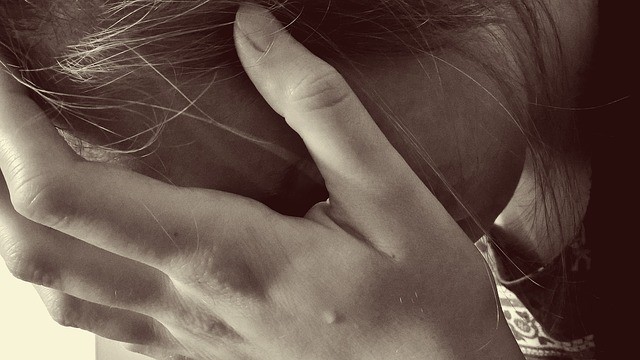6 Tips: Dealing With Grief When You Have Bipolar Disorder

Join my friend @EmpowHER and me (@JessicaGimeno) on Twitter at 7 pm EST tonight. We’re talking about healthy ways to cope with grief. Use #HERchat to join the conversation!
*Last month, I lost a great friend of mine, Jess, to muscular dystrophy. Any time someone young dies, there is shock and regret on top of the usual grief. Having myasthenia gravis, Jess and I were fellow soldiers fighting a daily war against neuromuscular autoimmune diseases. I haven’t such a bad day since I lost a friend to bipolar disorder nearly thirteen years ago.
When you have bipolar disorder, loss can be a major trigger for depression. A trigger is something that precipitates a depressive episode (or on the flipside, manic or hypomanic episode). While losing Jess is tragic, I haven’t sunk into the deepest kind of depression a person with bipolar disorder can feel. I cried for two and half days when I found out but I always knew I would survive the grief. The grief was (and is) tremendous, but not insurmountable. I knew it wouldn’t swallow me, which is something I would not have been sure of years ago. It’s been over a decade since I was diagnosed with bipolar disorder. Over the years, I have added many tools to my bipolar disorder survival kit.
One of the first things I did was schedule an appointment with my therapist. I also called my friend Ron (he calls me his older sister and I call him my brother) and my cousin Shelly. I asked a few other close friends for prayers too. Days afterwards, I was with my family—parents, cousins, and uncle and aunt. My uncle had surgery—being around family made everything more bearable. In addition to crying to close friends, I wrote about my feelings to myself. My writing wasn’t elegant, but it was an outlet for my grief. Lately, I’ve been practicing mindfulness and spending more time in the Bible, particularly the book of James. Reciting this verse to myself in my quiet moments helped me:
James 1:12, Blessed is the one who perseveres under trial because, having stood the test, that person will receive the crown of life that the Lord has promised to those who love him.
Since Jess’s death, I’ve had to do a lot of things like taking my debate team to two state championships (yes there are two, which means twice the stress). Between coaching debate, writing, and meetings, I had to make time for self-care. I forced myself to exercise, even though I didn’t feel like it. And exercising made me feel better—like I would overcome my problems. Exercise is a major tool in fighting stress and depression because exercising releases endorphins, also known as “the feel good hormones.” (See my previous post, 6 Ideas: How to Exercise When You’re Depressed.) I also ate healthy—not everyday—of course. Even without grief, it’s hard to be good every single day. But I knew I couldn’t live in bed with potato chips for a week.
This week, I got an email from a good friend asking me to be part of a great mental health project. I politely declined, told him what happened, and said I would not be taking on any new projects for April. Learning to say “no” is critical to surviving grief. If something is non-essential, it’s important to say no.
Finally, one of the best tools I use to manage bipolar disorder is mood charts. (You can read more about them here, 3 Tips for Making Mood Charts Work.) Having charted my moods for years, I knew myself well. I knew that Jess’s death could be a trigger, which is why I sprang into action quickly—calling my therapist and close friends. The mood chart I use runs from a scale of 1 to 5 where 1 = severe depression and 5 = extreme mania. Since Jess died, my moods have volleyed between 2s and 3s. I haven’t run into any 1s.
To sum it up, here are 6 tips for dealing with grief when you have bipolar disorder:
- Schedule an appointment with your therapist
- Share your feelings with a few close friends
- Find an outlet to express your feelings
- Exercise and eat healthy
- Say “no” to new commitments
- Keep a mood chart
How do you handle grief?
To purchase the Moodtracker Diary: Private Mood Tracker Journal for 99¢ on iTunes, click here.
–Your Stylist, Jessica Gimeno



